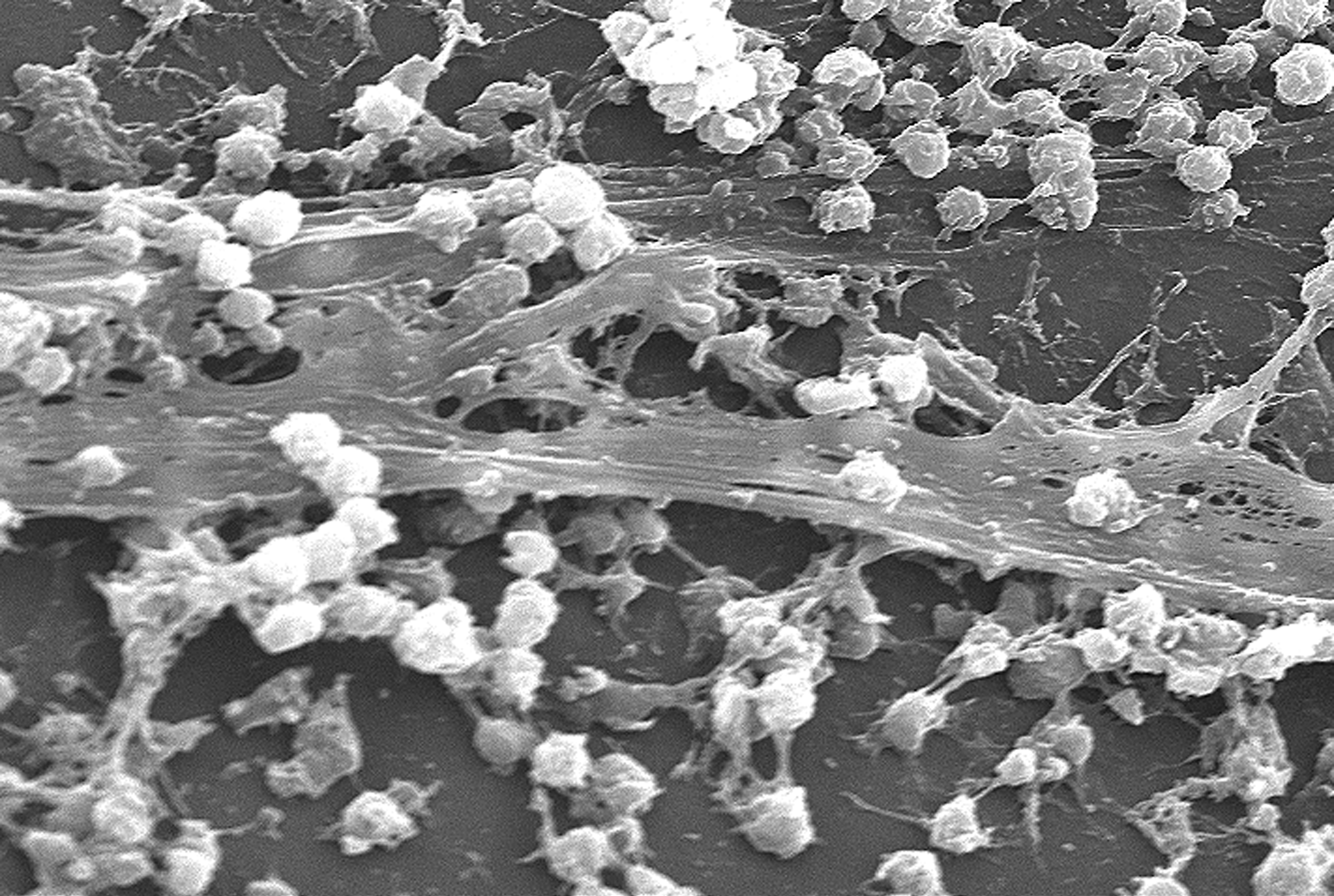 Staphylococcus aureus bioflim on the surface of a catheter
Staphylococcus aureus bioflim on the surface of a catheter Normally benign bacteria, such as Staphylococcus aureus, which ordinarily live peaceably on our skin, can become deadly due to a process known as ‘quorum sensing’. Researchers led by Steve Diggle of the Centre for Biomolecular Sciences have discovered that when bacteria opt out of quorum sensing, infection severity is decreased.
Bacteria (and some other organisms) use quorum sensing to coordinate their activities. In the case of bacteria, the main repercussions are that the bacteria can now converge into biofilms, and can now produce toxins. The biofilms are exceedingly difficult to kill and are the bane of hospitals around the world. The toxins, well, you can imagine how damaging they can be. Think ‘flesh-eating bacteria’.
It turns out that limiting oneself to a particular position within a biofilm framework and expending the energy to make toxins isn’t necessarily the best strategy for a young bacteria making its way in the world. For this reason, a few S. aureus bacteria don’t participate in quorum sensing. Because these bacteria don’t produce biologically costly toxins, they can concentrate their resources on replicating themselves. In short, the non-quorum sensing bacteria quickly out-compete their toxin-producing brethren. This leads to an overall reduction in disease severity.
The researchers hope they can turn this competition to their advantage in fighting infection. If doctors can encourage bacteria to be less cooperative, there would be fewer deadly effects of infection.
No comments:
Post a Comment